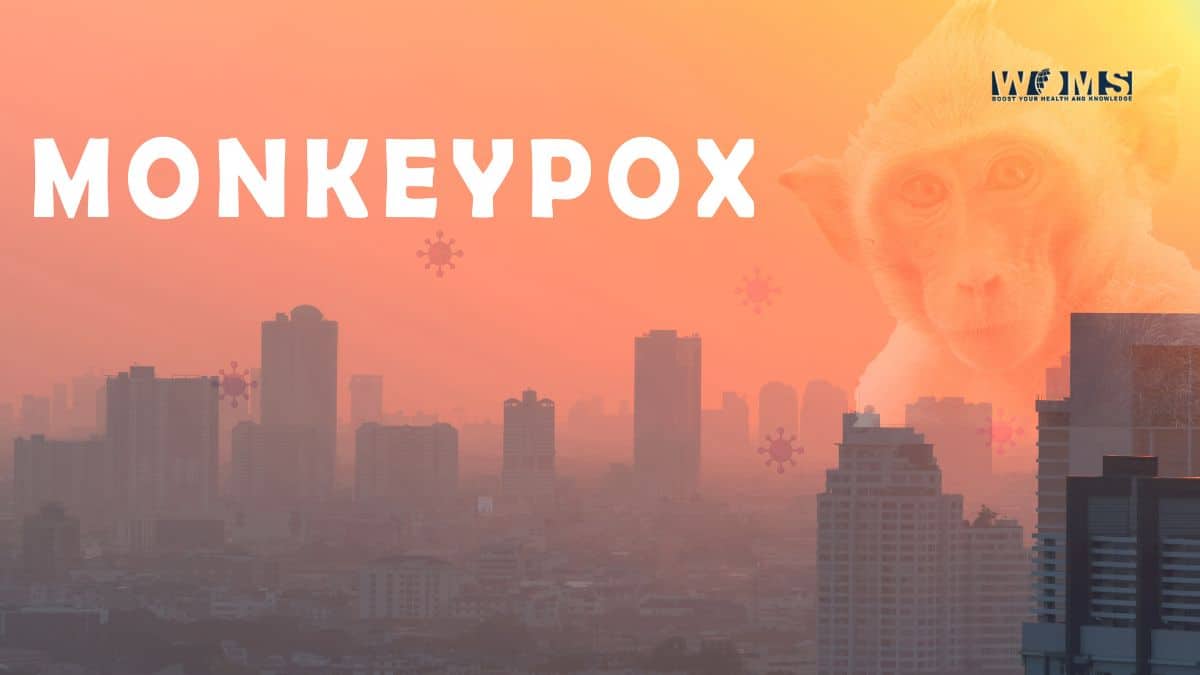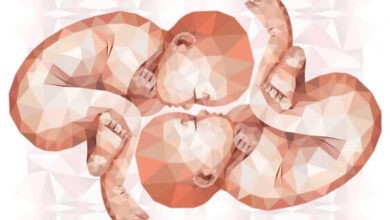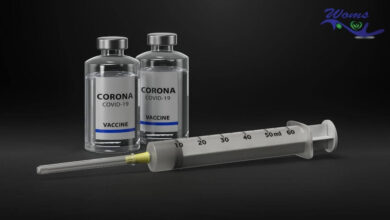Monkeypox Outbreak 2022

Monkeypox outbreak is something most people are concerned nowadays. The United States is currently experiencing an outbreak of a new and highly contagious zoonotic disease, Monkeypox. The first cases were reported in late 2002 in Ohio and Indiana Midwestern states. Since then, more than 100 human cases are confirmed with at least one death.
Monkeypox is caused by a virus belonging to the genus Orthopoxvirus family Poxviridae. This virus was originally isolated from African green monkeys but has since been found in other species, including rodents, shrews, bats, and humans. Human infection occurs when direct contact with infected animals or bodily fluids results in mucocutaneous lesions. In rare instances, the infection of Monkeypox outbreak may result in severe complications such as pneumonia, encephalitis, and hemorrhagic fever. The incubation period for this disease ranges from 2 to 10 days. The most common symptoms are fever, headache, myalgias, malaise, and rash. Other less frequent manifestations include lymphadenopathy, conjunctivitis, diarrhea, vomiting, abdominal pain, and cough.
There is no specific treatment for Monkeypox; however, supportive care is usually sufficient. Prevention of exposure to wild rodents and other mammals is critical. If you suspect you have come into contact with a potentially infectious animal, immediately wash your hands thoroughly with soap and water. Avoid touching your eyes, nose, mouth, or any cuts on your skin. Do not go near sick animals. Report suspected cases of Monkeypox to your local health department.
What Is Monkeypox outbreak?
Monkeys are the natural host of Monkeypox. They carry the virus in their fur and excrete it through their saliva. Humans become infected when they touch contaminated objects or surfaces and then touch their eyes, noses, mouths, or open wounds. Once inside the body, the virus multiplies rapidly and can cause serious illness.
Symptoms appear about 7-14 days after exposure. The initial signs of infection include fever, chills, fatigue, muscle aches, headaches, and swollen glands. These symptoms last for several weeks and often resolve without medical intervention. However, if untreated, the virus can spread throughout the body, causing pneumonia, encephalitis (brain inflammation), and even death. This makes the monkeypox outbreak dangerous.
How Does It Spread?
Monkeypox is transmitted primarily through close contact with infected animals or materials containing their secretions. Infected people shed viruses in their respiratory tract, urine, faeces, and blood. Contaminated clothing, bedding, and equipment also pose a risk for transmission. Animals do not show clinical signs until approximately 5-7 days after exposure to the virus. They begin to develop small red bumps around the mouth, nose, eyes, ears, and their secretions.
For example, people who work around petting zoos, feed exotic animals or handle dead or sick animals are at risk of contracting the disease. People also become infected when they touch items contaminated with the virus. For instance, veterinarians who treat sick animals or zoo workers who clean cages and enclosures are at high risk of acquiring the disease. The virus can be transmitted from person to person via aerosolized particles produced during coughing or sneezing. This aids to the monkeypox outbreak.
Why Are We Concerned About This Disease?
The recent Monkeypox outbreak in the Midwest has raised concerns because it represents the first time this disease has been seen outside Africa. Although the disease has been known to occur in Africa for many years, it had never before been documented in North America. Furthermore, the fact that this disease has now appeared in two different regions suggests that it could easily spread to other parts of the country. The Centers for Disease Control and Prevention (CDC) estimates that there are between 1 million and 3 million cases of Monkeypox outbreak each year worldwide. Of these, approximately 500 deaths occur annually. Because of its potential to cause significant morbidity and mortality, Monkeypox should be considered a public health threat.
What Should I Do?
If you think you might have contracted Monkeypox, call your doctor right away. Your physician will want to know whether you have recently travelled out of the country, where you went, what you did while there, how long you stayed, and whether you came in contact with animals or wildlife. You should also tell your doctor if you:
- Have any rashes on your skin
- Had contact with an animal or wild animal
- Worked near animals or wildlife
- Were bitten by an insect
- Traveled to areas where Monkeypox occurs
If you think you may have come into contact with someone infected with Monkeypox, ask them to see their doctor immediately. Tell your doctor about the above information to determine whether further testing is needed. In addition, you should wear protective gloves and wash your hands thoroughly with soap and water after touching potentially contaminated objects or coming in contact with anyone diagnosed with Monkeypox. You must be concerned regarding what to do in monkeypox outbreak.
What Can Be Done To Prevent Transmission?
There is no vaccine available for Monkeypox. Therefore, prevention relies upon limiting human exposure to the virus. If you think you might have been exposed to Monkeypox outbreak, take steps to avoid infection. These include avoiding direct contact with animals and wild animals, washing your hands frequently, and wearing protective gloves and masks when working around animals or wildlife.
Diagnosis of Monkeypox
There is currently no test available to diagnose Monkeypox. Instead, doctors rely on symptoms such as fever, headache, muscle aches, fatigue, cough, and rash. A sample of fluid taken from the patient’s throat or nasal passages may be sent to a laboratory for analysis. However, results usually take several days to return.
Vaccines
The CDC recommends that people at high risk for contracting Monkeypox receive a vaccination against the disease. This includes healthcare workers, veterinarians, zoo employees, and those who work closely with animals and wildlife. People who live in rural areas or travel to places where Monkeypox outbreak occurs should also consider getting vaccinated.
Preventing Monkeypox
Although there is no cure for Monkeypox, there are ways to prevent the disease. Avoiding contact with wild animals is one way to protect yourself from the monkeypox outbreak. Also, don’t let children play with animals or pets without supervision. Children under 5 years old should not handle animals or pet zoos. Adults over 65 should avoid contact with sick animals.
Therapeutics
Treatment for Monkeypox depends on the severity of the illness. The most common treatment is supportive care, which involves treating symptoms like fever, pain, and loss of appetite. Antibiotics are used to treat secondary infections caused by bacteria. Other medications may be prescribed depending on the type of infection. For example, antiviral drugs may be given to patients who develop pneumonia. Supportive care facilities must be well-maintained in the regions of monkeypox outbreak.
Monkeypox Symptoms
Symptoms of Monkeypox include fever, headache, muscle pains, fatigue, coughing, and a skin rash. Some people will only experience some of these symptoms, while others may experience more severe symptoms of monkeypox outbreak
A new study published in Science Advances reveals how a deadly Ebola virus spreads through the air. Researchers found that airborne virus transmission is possible. Still, it requires close physical contact between an infected person and another.
A new study published in Nature Communications shows that the Ebola virus can spread through the air via small droplets expelled during sneezes and coughs. The findings suggest that airborne transmission of the Ebola virus could occur in enclosed spaces, including hospitals and airplanes.
Infectious Disease News reports that the World Health Organization (WHO) recently announced that the number of cases of Ebola had surpassed 10,000. According to WHO figures, 11,310 cases of Ebola and 4,918 deaths were attributed to the outbreak. In addition, there are now 2,849 suspected cases of Ebola.
Monkeypox outbreak Causes
Several factors contribute to the spread of this disease:
- The reservoir of the virus is unknown.
- The incubation period for the disease is long.
- The virus is highly contagious.
- The disease is easily transmitted from human to human.
- The disease is fatal if left untreated.
Monkeypox Treatment
Although there is currently no cure for the monkeypox outbreak, treatments are available to help manage the disease. These treatments depend on the severity of the patient’s condition.
For mild cases, the primary goal is to relieve symptoms such as fever, chills, body aches, and headaches. Patients with moderate or severe symptoms should receive antibiotics to prevent secondary bacterial infections.
Antiviral drugs may also be administered to reduce viral replication and speed recovery. However, antivirals cannot treat patients who already have developed complications from the infection.
Treatment for Monkeypox Complications
If you develop any signs or symptoms of the monkeypox outbreak, seek medical attention immediately. If your doctor suspects you have contracted the disease, they will likely order blood tests to confirm the diagnosis.
Complications from the disease can include pneumonia, encephalitis, meningitis, myocarditis, hepatitis, and kidney failure.
Conclusion
The Monkeypox outbreak has become a major public health concern in West Africa. Although there is no known cure for the disease, treatments are available for its management.
Frequently Asked Questions(FAQs)
What is the difference between Ebola and Monkeypox?
Ebola is an acute viral hemorrhagic illness caused by the Zaire ebolavirus. This virus is named after the river, which was discovered in 1976.
Monkeypox is a zoonotic disease caused by the variola genus of pox viruses. It is similar to smallpox but much less deadly.
How does one get infected with Monkeypox?
Monkeypox is usually acquired through contact with infected animals or bodily fluids. The most common animal reservoirs are rodents.
Is there a vaccine against Monkeypox?
Yes, a vaccine called Mpvax, which protects people against both smallpox and Monkeypox.
What are the symptoms of Monkeypox?
Symptoms of Monkeypox include high fever, headache, muscle pain, vomiting, diarrhea, cough, and rash.
Are there other diseases like Monkeypox?
Yes. Smallpox is another serious disease caused by the Variola genus of poxviruses. Like Monkeypox, it is a zoonotic virus.




